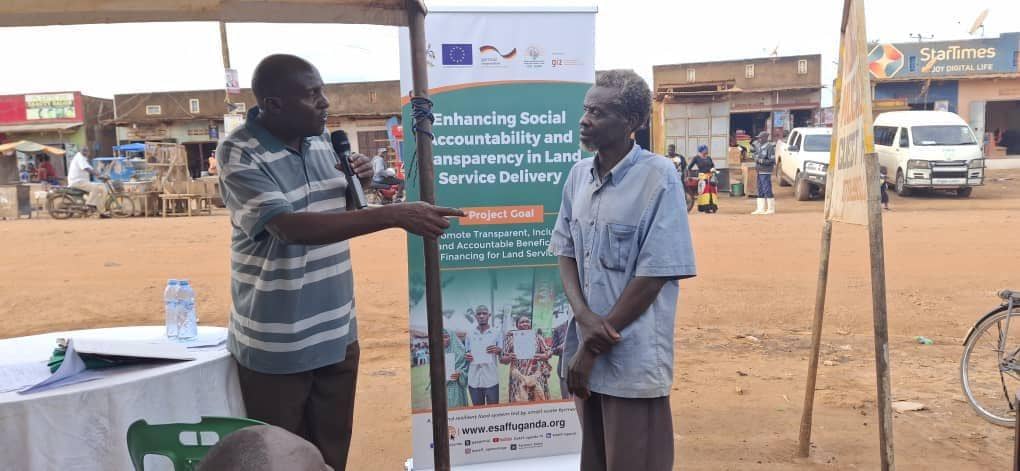Land remains one of Uganda’s most vital assets, sustaining more than 80 percent of the population through agriculture. Yet its effective and equitable use continues to face major challenges—including poor governance, corruption, gender disparities, and limited public awareness of land rights.
To address these persistent issues, the Eastern and Southern Africa Small Scale Farmers’ Forum (ESAFF Uganda), in partnership with the Ministry of Lands, Housing and Urban Development and the Directorate of Integrity under the Office of the President, has launched a campaign to strengthen transparency and accountability in land administration.
The initiative aims to equip local leaders and district officials with the knowledge and tools needed to enhance integrity and efficiency in land service delivery, ultimately fostering greater public trust in government institutions.
As part of the campaign, ESAFF Uganda and its partners have conducted training sessions in Mityana and Gomba districts for members of the District Integrity Promotion Forums (DIPFs). These sessions promote ethical conduct, transparency, and effective service delivery in handling land matters.
“Our goal is to nurture a culture of integrity in land institutions and empower district actors to serve the public transparently,” said Dennis Obbo, Commissioner at the Ministry of Lands. “When government officials, local leaders, and citizens each understand their roles, land disputes decline, and service delivery becomes faster and fairer.”
In addition, ESAFF Uganda organized a Land and Corruption Literacy Camp in Kabulasoke Sub-county, Gomba District, to raise awareness among small-scale farmers, women, and youth about their land rights and available mechanisms to report or prevent corruption in land transactions.
The camp educates citizens on how to file complaints, seek redress for land-related grievances, and use transparent systems for land registration and payments.
“Many people are not familiar with the right procedures for acquiring or registering land,” explained Noeline Nambuusi, a small-scale farmer from Gomba.
“For instance, you can now pay busuulu (ground rent) directly through the Uganda Revenue Authority (URA) website, which automatically calculates the amount owed, generates a Payment Registration Number (PRN), and allows you to complete the payment via mobile money—helping to eliminate exploitation by middlemen.”
However, some residents raised concerns about digital accessibility for individuals without smartphones or reliable internet.
“What about those who don’t have smartphones or internet access?” asked Godfrey Sempijja, a farmer from Kabulasoke. “Is there an alternative way to generate PRNs offline?”
Officials acknowledged these challenges and emphasized the importance of community sensitization and alternative support systems to ensure inclusivity in the digitization process.
During the same sessions, officers from the Ministry of Lands demonstrated proper land registration procedures and urged citizens to use official channels to avoid fraud and unnecessary delays. A mobile legal aid clinic was also held, offering free legal guidance and assistance to community members facing land disputes.
ESAFF Uganda noted that the broader goal of the initiative is not only to combat corruption but also to strengthen collaboration between citizens and land service providers, building mutual trust and accountability in public service.
The Land and Corruption Literacy Camp forms part of Uganda’s ongoing national efforts to improve land governance systems and ensure equitable access to land resources—so that the country’s most valuable asset benefits all citizens fairly and sustainably.


